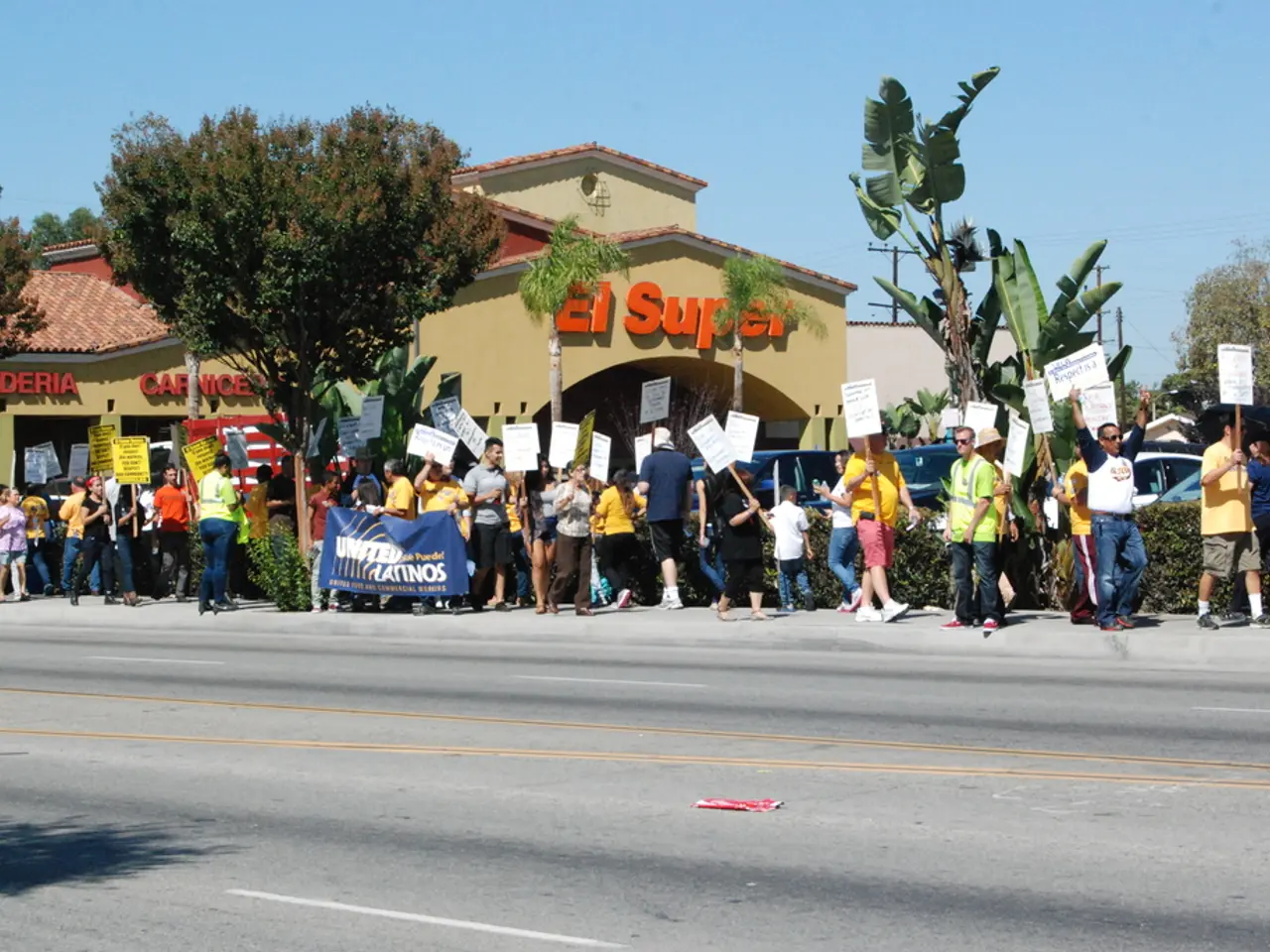Trump considering reduction of troops in Chicago?
In a recent development, President Donald Trump's approach to his presidency continues to face opposition from a significant portion of the American public.
According to a CBS News-YouGov poll, a majority of Americans disapprove of Trump's approach to his goals, with 63% disapproving compared to 37% who approve. This disapproval extends to Trump's plans to deploy the National Guard to combat crime, with Americans opposing such a move by a margin of 57-43% in Washington, D.C., and 61-39% when considering the application to their own cities and areas.
Trump has been discussing the possibility of sending National Guard troops to target crime in cities such as Chicago, New York, Memphis, and Los Angeles. However, it appears that he has not yet visited Chicago, New York, or Memphis, despite Memphis being the third city—after Los Angeles and Washington, D.C.—to receive such deployment.
In relation to the deployment operation in Illinois, the Department of Homeland Security announced a deportations operation in the state on Monday. Contrary to Trump's claims, this operation is not the large-scale crime crackdown involving the National Guard that he has been discussing.
The administration has recently focused on previewing a large-scale deportation operation in Chicago and other cities. However, Defense Secretary Pete Hegseth stated that Trump wants governors to invite him in, implying that the administration may not proceed without local approval. Trump and others have been emphasizing the need for approval from Illinois Gov. J.B. Pritzker and Chicago Mayor Brandon Johnson, who are both Democrats.
Trump's plans to deploy the National Guard have also been met with legal challenges. A federal judge has ruled against Trump's ability to use troops for law enforcement. If Trump backs off from sending troops to Chicago, it will be a remarkable capitulation.
Despite Trump's claims, Americans are more likely to view his actions as being about politics (45%) than actually reducing crime (33%). Furthermore, Americans are significantly more likely to say that Trump's moves make their own rights and freedoms less secure (39%) than more secure (26%).
Trump stated on Tuesday that "We're going in," without specifying a timeframe. However, he has downplayed the possibility of going into Chicago this week. Trump has also floated the possibility of going into cities where Republican governors could invite him, like New Orleans.
In conclusion, President Trump's plans to deploy the National Guard and carry out large-scale deportations continue to face opposition from a majority of Americans. The legal challenges, the need for local approval, and the perceived political motives behind these actions have contributed to the public's disapproval.
Read also:
- ICE directed to enhance detention conditions following NYC immigrants' allegations of maltreatment
- Israeli finance minister issues warnings about potential annexation of West Bank territories
- United States faces rebuttal from South Africa over allegedly deceitful human rights report and assertions of land expropriation
- Accident at Rodalben Results in Injuries; Geoskop Area near Kusel Affected After Stormy Weather








